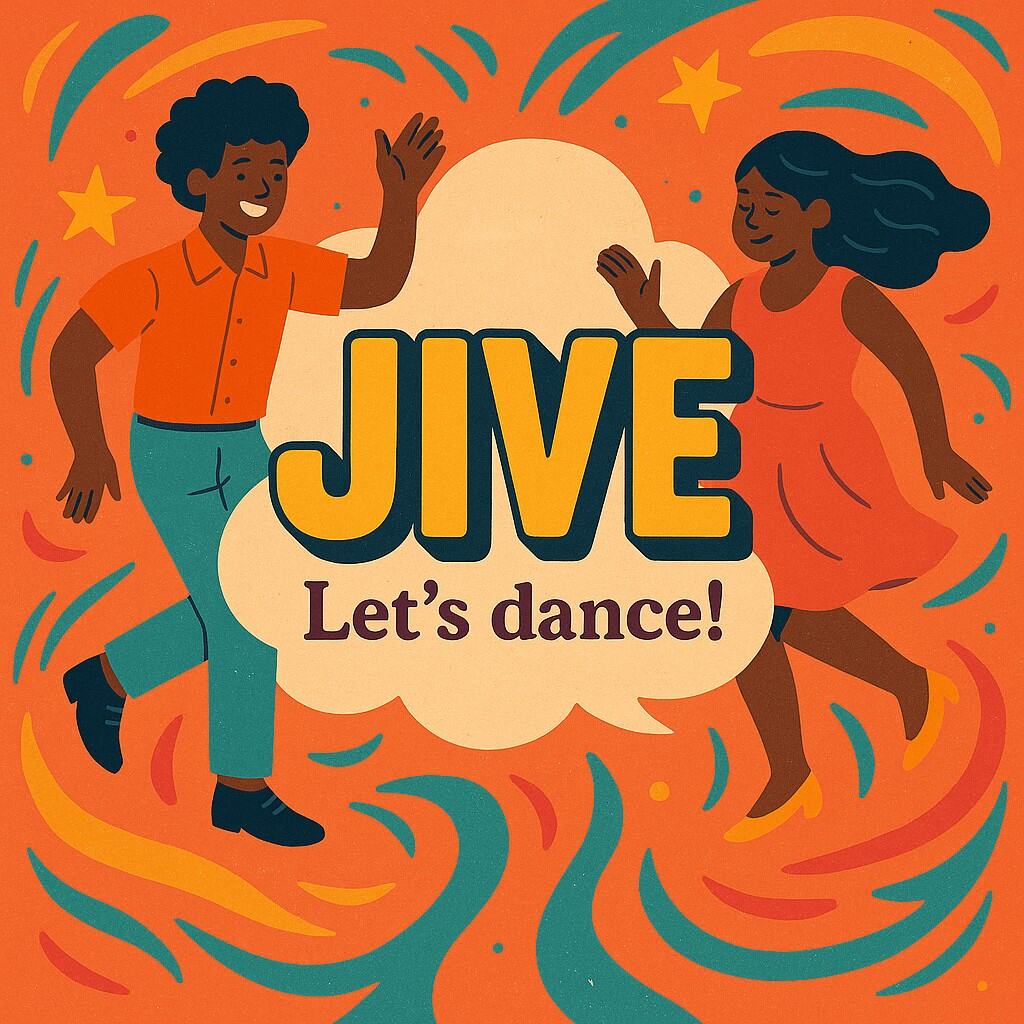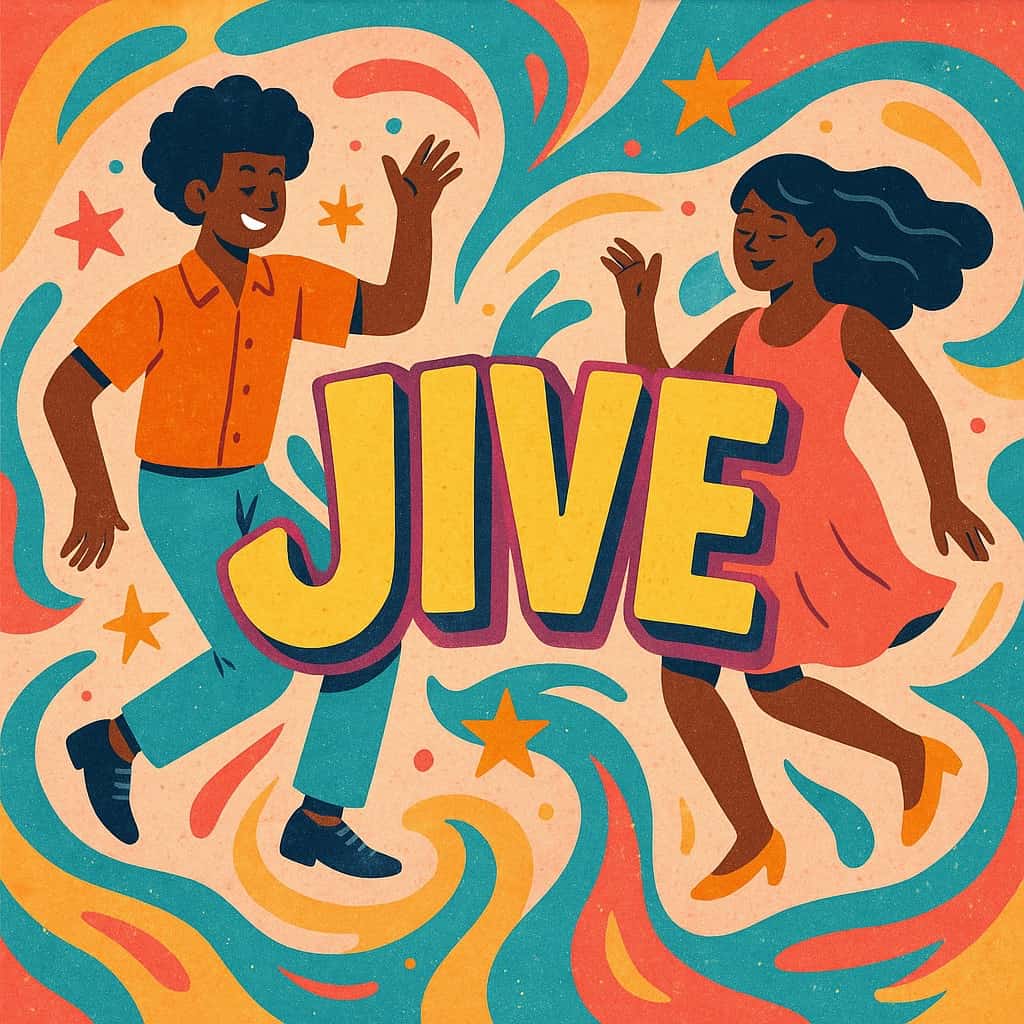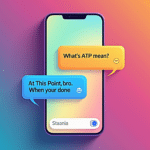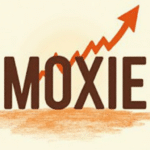Ever heard someone say, “Don’t give me that jive,” or seen a dance battle where people are “jiving”? The word “jive” packs a surprising amount of history, attitude, and style. It’s one of those words that can mean a bunch of different things depending on who’s saying it and where you hear it. Let’s break down what “jive” really means, why it’s still around, and how you can use it without sounding like you’re stuck in the 1940s (unless that’s your vibe).
| What It Means | Where You’ll Hear It | Why It Matters | Example Use |
|---|---|---|---|
| Dance/music style 🕺 | Dance shows, retro parties | Shows off cool dance moves | “They’re jiving hard!” |
| Slang for fake talk 🙄 | Texts, movies, conversations | Calls out lies or exaggeration | “That’s just jive.” |
| Part of pop culture 🎷 | Songs, memes, TikTok | Connects old-school & new trends | “That’s some jive talk!” |

What Does “Jive” Actually Mean?
Jive is one of those words that’s been around forever and still pops up in the wildest places. Here’s what it usually means:
- A Dance Style: Jive is a super energetic dance that started in the 1930s, usually set to swing or jazz music. Think fast footwork, big smiles, and a ton of bounce. If you’ve ever watched old-school dance-offs or shows like “Dancing with the Stars,” you’ve probably seen jive in action.
- Slang for BS: If someone says, “Don’t give me that jive,” they’re basically calling out nonsense, lies, or over-the-top talk. It’s like saying, “Stop trying to fool me.” You’ll see this meaning in movies, old-school rap, and sometimes even in text chats.
- Talking Smooth: Sometimes, “jive” just means talking in a slick, smooth, or exaggerated way. It’s got a playful edge—like someone’s trying to charm or impress you, but you know they’re laying it on thick.
If you’re into slang, check out how words like “wrd” or “sus” have their own double meanings too.
Where Did “Jive” Come From?
Jive’s roots go deep. The word first showed up in African American communities in the early 20th century, especially in jazz clubs. It was all about the music, the moves, and the way people talked—fast, clever, and full of attitude.
- Dance Floor Origins: The jive dance exploded during the swing era (1930s-1940s). Soldiers brought it back from World War II, and suddenly everyone wanted to learn those wild moves.
- Slang Evolution: As jazz and swing spread, so did the slang. “Jive talk” became a way to describe the cool, coded language of musicians and hipsters. Over time, it shifted to mean “fake” or “over-the-top” talk.
A fun fact: My grandma used to say, “That’s just jive, honey,” whenever my uncle tried to explain why he was late for dinner. It always cracked me up—she could spot jive a mile away.
How People Use “Jive” Today
You might not hear “jive” every day, but it still pops up in some pretty cool places:
- Dance Competitions: Jive is still a big deal in ballroom and swing dance circles. If you’re into TikTok dance trends, you might spot some jive moves sneaking in.
- Calling Out Nonsense: People use “jive” in texts or DMs to call out exaggeration or fakery. It’s kind of like saying “smh” or “sus” when something feels off.
- Pop Culture Throwbacks: Old-school movies and songs love the word “jive.” Ever seen “Airplane!”? The “jive talk” scene is legendary. Even modern memes will sometimes bring it back for laughs.
Quick List: When to Use (and Not Use) “Jive”
Go for it when:
- You’re talking about dance or music from the swing era.
- You want to call out someone’s exaggerated story in a playful way.
- You’re quoting or referencing classic movies or songs.
Maybe skip it if:
- You’re not sure if your friends know what it means (could get lost in translation).
- You’re in a super formal setting (your teacher might just give you “the look”).
- You’re texting someone who’s all about Gen Z slang—they might think you’re talking about orange juice or something.
Tip: If you want to get the vibe of “jive” without sounding old-fashioned, try mixing it with newer slang. For example: “That’s some jive, fr.” (See what “fr” means!)
Real-Life Examples of “Jive” in Action
Let’s see how “jive” actually shows up in the wild. Whether it’s on social media, in conversations, or in pop culture, this word still gets some play:
- On TikTok: “Learning the jive for my school dance and omg my feet hurt 😂”
- In Texts: “Bro, stop with the jive. Just tell me what really happened!”
- On Twitter/X: “That’s some political jive if I ever heard it. 🙄”
- In TV Shows: Throwback comedies or movies like “Airplane!” use “jive talk” for laughs and to show off quirky characters.
And hey, if you’re into decoding other text slang, check out “wtw” or “lolol” for more examples of words that mean more than you think.
Variations & Regional Differences
“Jive” isn’t used everywhere the same way. Here’s how it breaks down:
- In the U.S.: Most people know “jive” as either the dance or as slang for nonsense. It’s got a retro vibe, but you’ll still hear it in old-school hip-hop or jazz circles.
- In the U.K. & Europe: Jive is mainly about the dance, especially in ballroom competitions. If you say “jive talk,” you might get some confused looks.
- Among Older Generations: Your grandparents or older relatives might use “jive” more often, especially if they’re into jazz or grew up in the swing era.
- Gen Z & Millennials: Not as common, but it pops up in memes, retro-themed parties, or when someone’s quoting old movies. If you want to blend old and new, try pairing it with slang like “bussin” or “gyat”.
Trends & Noteworthy Moments
- Dance Shows: Jive is a staple on “Dancing with the Stars” and similar competitions. It’s known for its high energy and flashy moves.
- Pop Culture: The “jive talk” scene in “Airplane!” is iconic—people still reference it for laughs.
- Retro Comebacks: Every few years, swing and jive music/dance have a mini-comeback, especially at themed parties or in viral dance challenges.
- Slang Revival: Sometimes, older slang like “jive” gets a second life thanks to nostalgia or memes. It’s a fun way to stand out in a sea of acronyms and abbreviations.
Related Terms & Entities
If you’re digging the vibe of “jive,” you might also want to know about:
- “Boogie” – another dance and slang word
- “Jazz” – the music style that gave birth to jive
- “Sus” – modern way to call out something suspicious or fake
- “Bookend” – another term with multiple meanings
- “LBVS” – a funny way to say you’re laughing hard
- “WYF” – another acronym you’ll see in chats
Pros & Cons of Using “Jive”
Here’s the lowdown on when “jive” works—and when it might flop:
Pros 👍
- Unique & Memorable: Using “jive” makes you stand out, especially if everyone else is using the same old slang.
- Connects Generations: It’s a cool way to bond with older relatives or fans of retro culture.
- Versatile: Works for both dance/music and calling out fake talk.
Cons 👎
- Can Sound Outdated: Some people might think you’re stuck in the past (unless you’re going for that retro vibe).
- Misunderstood: Not everyone knows the slang meaning, especially outside the U.S.
- Context Matters: Using it in the wrong setting (like a serious convo) can make things awkward.
Final Thoughts: Should You Use “Jive”?
If you want to add a little old-school flavor to your vocab or just need a fun way to call out nonsense, “jive” totally works. Just be ready to explain yourself if someone gives you a blank stare. And if you’re ever at a dance party, bust out some jive moves—you’ll definitely get noticed (and maybe even go viral).
Want to keep your slang game strong? Dive into more terms like “wrd”, “smh”, or “bussin”. Who knows? You might just start your own trend.
So next time you hear someone say, “Don’t give me that jive,” you’ll know exactly what’s up—and maybe you’ll even drop a little jive of your own. 💃🕺







